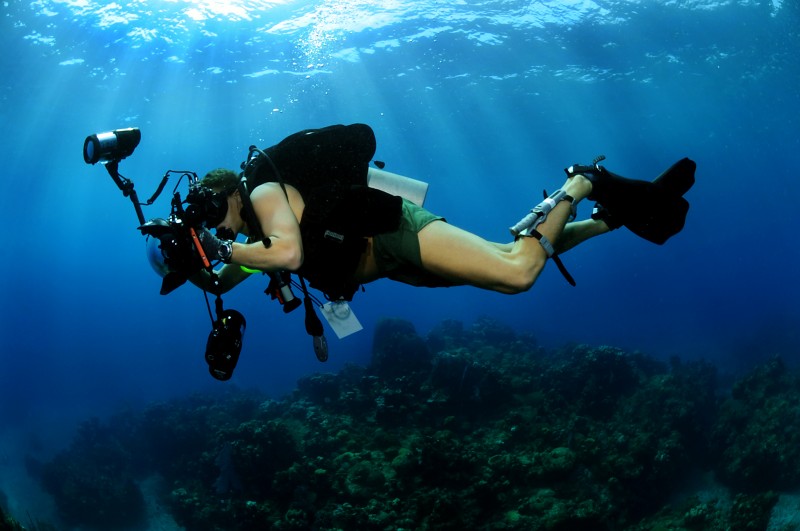
A diver captures the underwater environment and marine life.
David Hsiung Bing-kuan has been exploring underwater environments for the past 60 years, documenting marine life through photography along the way. Although much of his work showcases the dazzling life of the sea, it’s not all beautiful.
The 73-year-old scuba diver has traversed the underwater world of the South China Sea for his work, coming across many “dead zones” that were formed because of poison and dynamite used for purposes of illegal fishing.
According to an article by the South China Morning Post, Hsiung is disappointed about what he has discovered under the surface.
“Fish poisoning and the use of dynamite used to be common, and they have caused the worst ecological damage to the undersea environment,” Hsiung said in the article.
He said when he thinks back to the most horrific destruction he has ever witnessed in his career, his mind immediately goes back to Hainan in the 1980s. He expected the area to hold something completely different than what he found when he arrived.
“I had thought this was going to be a fish paradise, but it turned out the sea was dead,” Hsiung said. “The only living zone was around a pier where dynamite fishing was banned as the facility was near an oil pipe.”
Although he noted that the marine life in that area is starting to be replenished over time because of a ban on the use of dynamite as well as a fishing moratorium in the summer.
“But more must be done to restore the balance,” he added.
According to the article, Hsiung fell in love with diving in the 1950s while he was in secondary school in Happy Valley. He and his friends, the Liu brothers who founded Bunns Diving Equipment, went on skin-diving trips together. He said his first pair of flippers was bought from Lane Crawford, costing him what he thought of as a large amount of money at the time. From there, he began diving at Big Wave Bay on the eastern coast of Hong Kong Island.
Hsiung’s professional career in diving began after he joined the Chinese diving club, Sea Dragon Skin-Diving Club, where he moved up to the title of instructor.
“In the years to follow, diving became his way of life, and even now, he still dons his fins every week,” the article stated.
Although Hsiung criticized the lack of respect for marine life that is apparent in illegal fishing, he said he is a hobby fisherman himself. He said he remembers a time when he was able to catch 50 fish off Lamma Island in one afternoon, totaling about 65 pounds. He said it is the over-fishing that has led to the empty zones in the water, which he admitted to contributing to, although his fishing was legal.
“This is a thing of the past, and now I enjoy the process rather than the results,” he said. “Take just what you need from the seas and don’t abuse the lives in the ocean.”
He said where people need to place their attention is on recognizing how they contribute, specifically in regard to how much fish they consume.
“We Chinese are eating up all the fish in the oceans,” he said. “I know it is hard for people to stop, but there should be some restraints.”
Despite his age along with what he has seen during his years of diving, Hsiung said he plans to continue diving and photographing life under the water for at least the next 10 years.
Image from Jayme Pastoric on the Wikimedia Commons
 Your Privacy Choices
Your Privacy Choices
 The
The